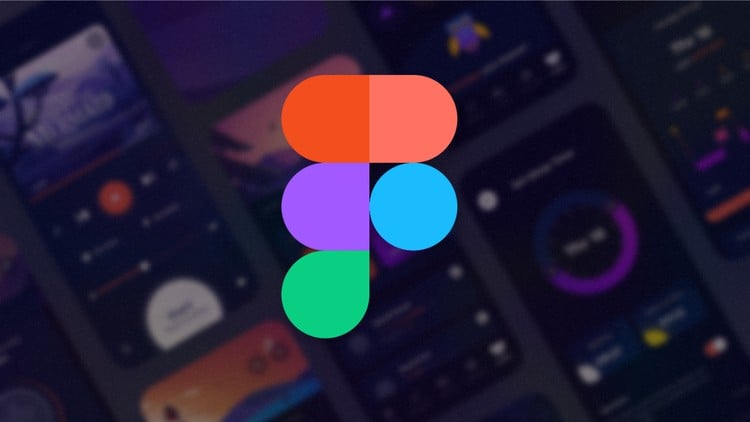
Unlock UI/UX Design Mastery: Figma for Web & Mobile Interfaces. Land Your Dream Job Now!
⏱️ Length: 9.8 total hours
⭐ 4.57/5 rating
👥 29,818 students
🔄 May 2025 update
Add-On Information:
Note➛ Make sure your 𝐔𝐝𝐞𝐦𝐲 cart has only this course you're going to enroll it now, Remove all other courses from the 𝐔𝐝𝐞𝐦𝐲 cart before Enrolling!
-
Course Overview
- This comprehensive program offers an immersive deep dive into the strategic and practical aspects of modern UI/UX design, utilizing Figma as its central tool. Beyond simply learning software, students will embark on a transformative journey to master the art and science of crafting intuitive, engaging, and accessible digital experiences for both web and mobile platforms. The curriculum is meticulously structured to bridge the gap between theoretical knowledge and real-world application, empowering individuals to think critically as designers.
- Explore the intricate relationship between user needs, business objectives, and aesthetic principles. This course emphasizes a user-centered design approach, guiding learners through the entire design lifecycle from initial discovery and conceptualization to iterative prototyping and user feedback integration. It’s designed to foster a holistic understanding of how compelling interfaces contribute to superior user satisfaction and business success in today’s digital landscape.
- Gain invaluable insights into establishing robust design workflows, collaborating effectively within design teams, and presenting design solutions with confidence and clarity. The program culminates in the development of a strong, diverse portfolio, enabling graduates to confidently step into professional design roles or elevate their existing careers with cutting-edge UI/UX expertise.
-
Requirements / Prerequisites
- A foundational familiarity with using computers and navigating online environments is recommended, though no prior design experience is strictly necessary.
- Access to a reliable internet connection and a computer (PC or Mac) capable of running Figma smoothly, as the entire design process will be hands-on within this powerful tool.
- An enthusiastic and open mindset, ready to embrace creative problem-solving, learn new concepts, and apply them through consistent practice and experimentation.
-
Skills Covered / Tools Used
- Advanced Design Thinking Methodologies: Cultivate a systematic approach to problem-solving, applying frameworks like divergent and convergent thinking, ideation techniques, and strategic design validation to ensure user-centric outcomes.
- Information Architecture & Navigation Design: Master the structuring of complex content, creating logical user flows and intuitive navigation systems that enhance findability and ease of use across various digital products.
- Design Systems & Component Libraries: Learn to build and manage scalable design systems within Figma, including the creation of reusable UI components, style guides, and comprehensive documentation to ensure consistency and efficiency in large-scale projects.
- Usability Research & Iteration: Develop practical skills in conducting qualitative and quantitative usability tests, interpreting data, and effectively translating user feedback into actionable design improvements through iterative refinement.
- Accessibility & Inclusive Design: Implement best practices for Web Content Accessibility Guidelines (WCAG) into your designs, ensuring products are usable by individuals with diverse abilities and promoting inclusive digital experiences.
- Responsive & Adaptive Interface Design: Acquire strategies for designing interfaces that seamlessly adapt to different screen sizes and device types, optimizing layouts and interactions for a consistent experience across mobile, tablet, and desktop.
- Effective Design Critique & Presentation: Develop the ability to articulate design decisions, receive constructive feedback, and present your work compellingly to stakeholders, fostering stronger communication and collaboration.
- Figma Mastery: Gain expert-level proficiency in Figma’s collaborative features, auto layout, variants, plugins, and advanced prototyping capabilities, leveraging its full potential for efficient and innovative design work.
-
Benefits / Outcomes
- Professional Portfolio Excellence: Graduate with a robust, client-ready portfolio featuring diverse, high-quality UI/UX projects that effectively showcase your end-to-end design capabilities and strategic thinking.
- Accelerated Career Advancement: Equip yourself with in-demand skills and a strong practical foundation, positioning you for competitive entry or significant growth in the thriving fields of UI/UX design, product design, or independent consulting.
- Strategic Design Acumen: Transform into a strategic designer capable of not just executing designs, but also understanding underlying user psychology, business goals, and technical constraints to deliver impactful solutions.
- Industry-Standard Proficiency: Achieve a level of expertise in Figma and modern design methodologies that aligns with current industry expectations, enabling you to integrate seamlessly into professional design teams.
- Enhanced Problem-Solving Abilities: Develop a keen eye for identifying user pain points and a systematic approach to crafting innovative, user-centered solutions that resonate with target audiences and drive engagement.
- Collaborative Confidence: Gain the skills and confidence to effectively collaborate with developers, product managers, and other stakeholders, ensuring smooth project execution and impactful design implementation.
- Adaptable Skillset: Build a strong theoretical and practical foundation that enables you to quickly adapt to evolving design tools, technologies, and industry trends, ensuring long-term career relevance.
-
PROS
- Comprehensive Coverage: Delivers a full spectrum of UI/UX design knowledge, from fundamental theories to advanced practical application, ensuring a well-rounded skillset.
- Figma-Centric Learning: Focuses on Figma, the industry’s leading collaborative design tool, making skills directly transferable to professional environments.
- Portfolio-Ready Projects: Provides hands-on opportunities to build a robust portfolio with real-world design challenges, crucial for career progression.
- Career-Oriented Outcomes: Designed to enhance employability, foster skill up-gradation, and accelerate career advancement in digital design.
-
CONS
- Self-Paced Learning Demands: Requires strong personal discipline and consistent self-motivation to complete modules and practice effectively without direct instructor intervention.
Learning Tracks: English,IT & Software,Other IT & Software
Found It Free? Share It Fast!